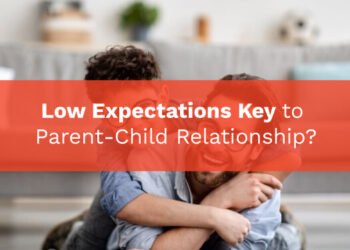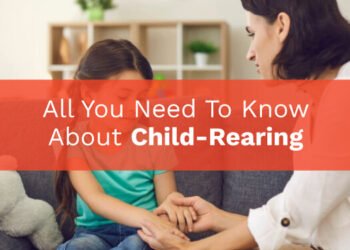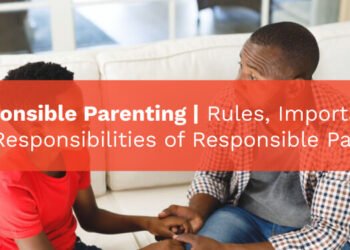You and your family have to decide when it’s time to move. Your child’s unhappiness may not be an issue when it comes to moving your house. Moving to a new school and changing school frequently can trigger sadness in children; some even experience confusion and despair.

It does not mean that all children get affected in this way. Regardless of why your kid changes schools, all kids take some time to adapt to this transition.
Transferring school may lead to adverse consequences such as increased unhappiness, low self-esteem, academic declines, and social challenges.
Effects of Changing School Frequently
Changing school frequently can have long-term consequences for children. Children who have moved often have fewer lasting relationships as adults. They are also less satisfied with life and other well-being.
Switching schools is particularly stressful for students in primary and middle school. If your child has fallen behind academically before, a more complex program may overwhelm or drive them to fall behind. Academic failure can affect their self-esteem as young children.
What Are the Signs That Your Child Isn’t Getting Along at School?
Some children find transitions easier than others. Transitioning to a new school frequently can be challenging, depending on the circumstances. Keep an eye out for the following signs if your kid is experiencing a lot of stress as a result of a move:
- Refusing to attend classes.
- They throw a tantrum when it’s time for school or when you mention school.
- They frequently throw tantrums when you try to take them to school.
- They’re showing more signs of separation anxiety than they were previously.
- They alter their sleeping and eating patterns.
Don’t panic even if your youngster exhibits any of these symptoms. Consult a teacher or a counselor about your alternatives. You can work with them to figure out what’s causing your child’s unhappiness and how to help them adjust.
How can a child suffer from transferring schools?
Children have to change schools for several reasons throughout their academic lives. Several circumstances might lead to a change in schools, including a change in career, job relocation, or a desire for a better education.
Changes might occur due to decisions such as the desire for a higher quality of life or a change in financial circumstances. Before graduating from high school, most children move to a new school at least once.
Unfortunately, for some youngsters, the stress of a transfer can lead to depressive symptoms. Parents should lookout for the following symptoms in children they may suffer while moving:
Losing Interest in Other Activities
Your child may, of course, lose interest in items they loved before, such as a beloved toy or TV show. They may proclaim that they do not want to do the job which was their favorite since childhood.
It is difficult for a child to find joy or excitement, and they could be indifferent about many things. But depressed children may appear to be passing through the movements without delight or enjoyment.
Feeling Incomprehensible
Every child will experience incomprehension at some point. A kid may believe that no one understands their feelings and that discussing them is worthless.
Your youngster may be afraid to try new things, speak out, or share ideas out of fear, misunderstanding, or mockery. As parents, you should talk to them about their feelings and insecurities.
Lack of Interest in Studying
Over time, children may have academic ups and downs. It would help if you kept in mind that learning new tasks can be complex during transition periods after moving schools.
A child could experience a considerable decrease in grades. Grade reductions can result from a lack of education, focus problems, or a lack of employment. It might be more evident in a child that has been a high academic successor in the past.
Energy Missing
Especially after long days, hard work, illness, or physical activity, everyone gets tired. But a child going through school transfer may be without energy and motivation at all times.
A deprived child could say that they are sleepy or take an unreasonable amount of time finishing a job. They lack the motivation to do any task given to them.
Guilty Feelings
Feelings of overwhelming and continuous guilt are common among youngsters with mixed feelings. If your child’s grieving lasts longer than two weeks and shows other indicators of distress, they may be suffering from feelings of guilt.
Guilt can also be a result of switching schools, as they leave their friends behind. A child with guilt will blame themselves for anything wrong, even if out of control. You should see your doctor or specialist for mental health.
Hold onto Old Friends
Making new friends in a new setting is vital to your child, keeping old friendships is crucial for them. Let your kid communicate and see his old buddies as much as he can.
It’s even more challenging for young introverts, as they find it harder to build relationships. It causes considerable interference in creating proper connections with someone new.
As your child has more interactions, it will be more supportive and confident to create new friends. A child with no classmates can start leaving school and social activities.
Looking out for symptoms in children who frequently change schools. Seek medical advice if your child shows some of the symptoms like:
Depression
Depression is the primary symptom seen in children. Poor sense of humor and loss of pleasure is generally the main symptoms of depressed adults. Key symptoms like impatience and physical distress for kids are also more likely to develop.
Other signs of childhood depression include difficulty focusing and make decisions, severe shyness, sleeping problems, changes in appetite, and self-damaging thoughts or activities. You need to keep an eye out for signs in your child if you doubt depression. Parents should always be aware of the following symptoms in children:
- Removal from family and friends
- Unreasonable crying
- Sensations of guilt
- Loss of interest in prior goods
- The decline in academics.
- Self-harm thinking or actions
- Unexplained physical symptoms are continuing (e.g., headaches, stomachaches)
- Changes in weight and appetite
- Problems with sleep
Sadness
Many things can make children sad, like lost connections, failure, moving about, losing a companion, or someone they love. Try to figure out what is unfortunate and support your youngster. If melancholy symptoms improve or subside after a couple of days, they usually aren’t associated with depression.
Depressed children may generally feel melancholy about their lives and future, or they may not recognize what is sad. For no evident cause, they may cry or tear often. Feeling of sorrow over two weeks is a reason to talk to the pediatrician of your child.
Follow these suggestions to assist them in adjusting to a new school at any time of year:
The circumstances of a transfer are sometimes non-negotiable. But if you are flexible, some things can make your child’s transition smoother.
Speak with your child about what to expect and how difficult it will be. Allow them to communicate their worries and hopes.
Speak with teachers in advance before the relocation. Ask them about any special needs they may have and how they feel about the transfer. Teachers are always present to assist you and your child. The more information you provide them with, the more they will assist your child in adjusting. Discuss with teachers and counselors about clubs or activities that your child can join to help them transition.
Stay connected with the teachers after moving to see if your child has adjusted well. A teacher may observe behaviors that your child does not exhibit at home and notify you if there is a problem.
Encourage your child to communicate and to experience these emotions. Children may learn that depressed feelings are not acceptable. Let them know that it’s not good to suppress their feelings rather than dealing with them.
Offer reassurance and make it clear to your child that they can tell you anything. Be their friend first, and create an environment where they feel comfortable sharing anything with you.
Conclusion
Changing school frequently is difficult since it affects children’s friendships, lifestyle, and comfort zone. It is about introverted children who may find it difficult to make new friends. Middle school is the most challenging period for a transition, as children go through more developmental changes at this age.
Moving is necessary but speaks with your children first. Put them at ease, and include them in all aspects of the transition. It will assist you in making a move as smooth as possible for your child while also displaying your support. This way, the impact of a transfer will be minimal.
Frequently Asked Questions
Is it a good idea to changing school frequently?
Every year, a large number of students transfer between schools and colleges. Transferring schools can be a good decision if you’re confident that the new school will provide the child with opportunities that your present one does not.
Is it challenging to be a transfer student?
Being a transfer student comes with its own set of challenges. Transferring to a new school is tough both emotionally and mentally. It doesn’t matter if you join at the start or middle of the year; you discover you dislike it after a semester.















